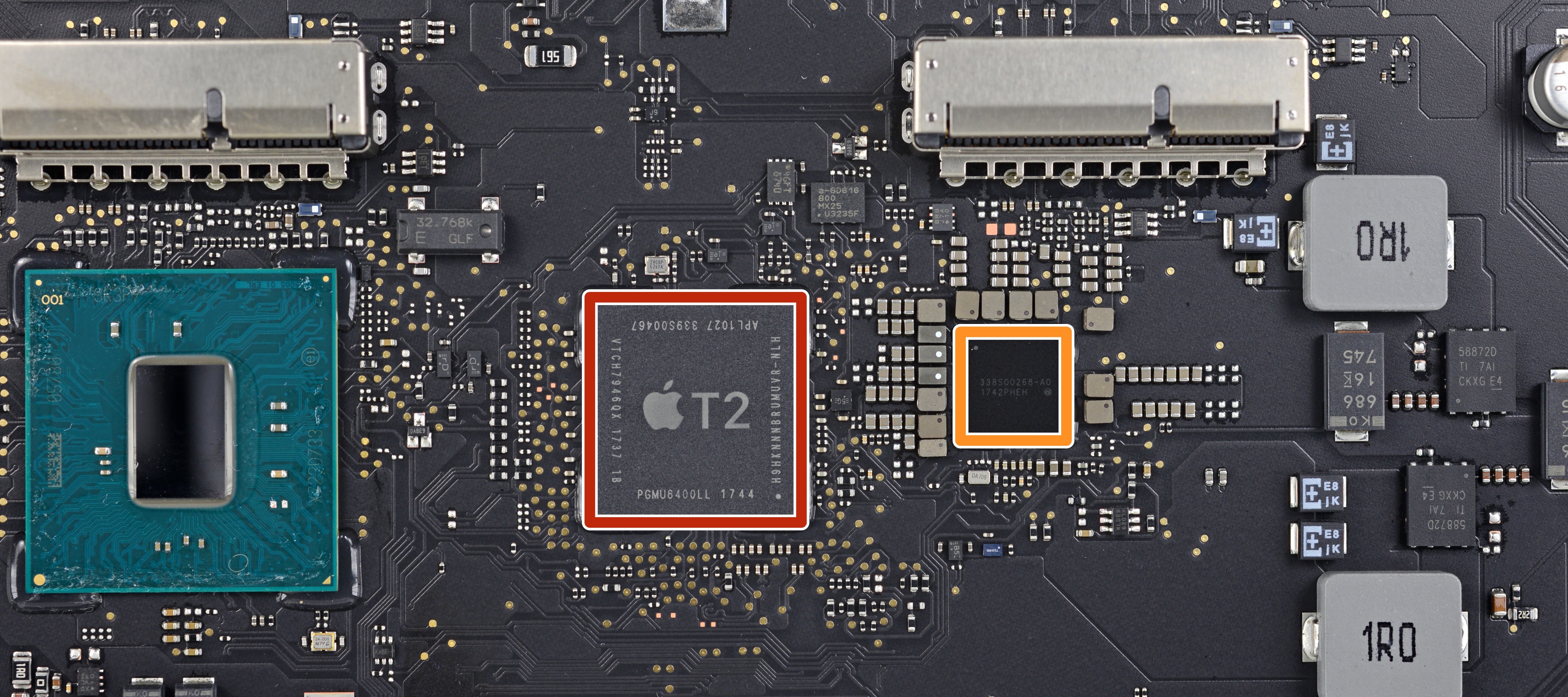
On Thursday, Motherboard and MacRumors both reported that Apple has added software locks on the 2018 MacBook Pro and 2017 iMac Pro. The digital locks could make it harder for independent and third-party repair shops to do their work.
According to internal Apple documents seen by both sites, the lock turns itself on whenever there’s a repair on the MacBook Pro’s display assembly, logic board, keyboard, touchpad, and Touch ID board. On the iMac Pro, it activates when work is performed on the machine’s Logic Board or flash storage.
Neither computer will work after a repair until Apple or a member of the company’s Authorized Service Provider repair program runs diagnostic software called Apple Service Toolkit 2. Without the diagnostic, the Mac will prove “inoperative.”
This policy targets Macs that feature Apple’s T2 security chip, which debuted on the iMac Pro last year and this year’s MacBook Pro. This chip could eventually find its way on other devices such as the next-generation MacBook and MacBook Air.
The document reads: “For Macs with the Apple T2 chip, the repair process is not complete for certain parts replacements until the AST 2 System Configuration suite has been run. Failure to perform this step will result in an inoperative system and an incomplete repair.”
Motherboard obtained a separate internal training presentation that mentions how to run the diagnostics. It says, “Apple Service Toolkit and Apple Service Toolkit 2 are available only to persons working at Apple-authorized service facilities.” In other words, you or an independent repair provider won’t be given access to the tool.
In its report, Motherboard rightly notes that companies like John Deere and automobile manufacturers have long used diagnostic codes or software to prevent owners from making repairs on their tractors or cars. However, it’s also right in saying Apple’s move takes this to a new level. In this case, independent repair shops can no longer work on these machines.
In the United States, 19 states are considering “Right to Repair” legislation that would require manufacturers to make repair parts, tools, repair guides, and diagnostic software available to the public. Apple has fought this legislation, as have others.
Apple hasn’t yet commented on either the Motherboard or MacRumors report.
It will be interesting to see where this issue goes moving forward. Apple’s position is almost certainly going to be that this type of locks will streamline the repair process. In the end, however, I’m not sure governments will see it this way. The bigger question, eventually, could boil down to who owns a computer after a sale, the manufacturer or the individual who actually made the payment?
Where do you stand on this issue? Leave your comments below.